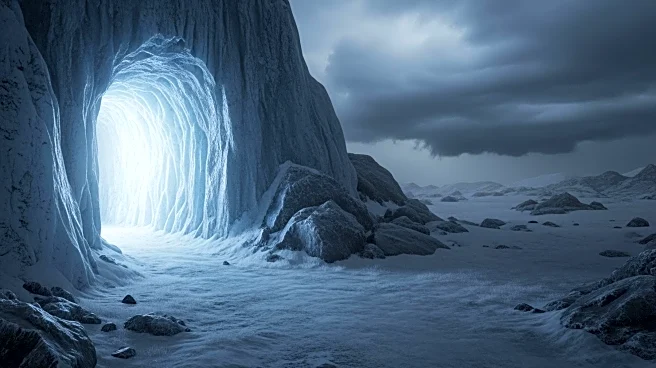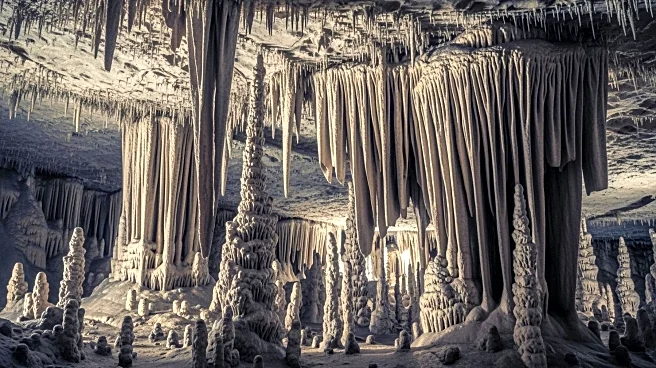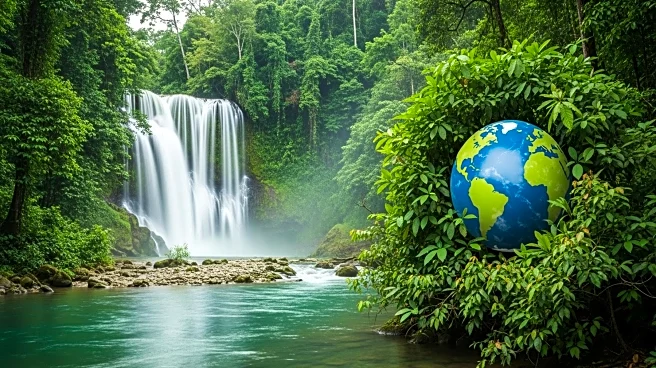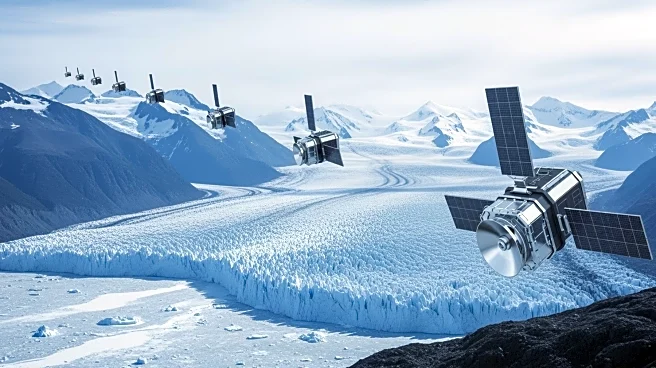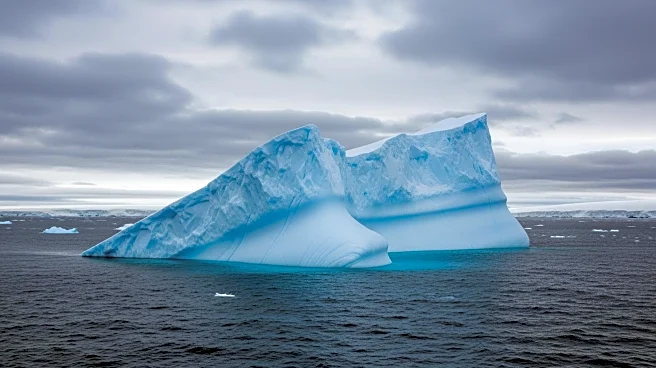What's Happening?
Researchers exploring Greenland's remote caves have uncovered geological deposits that reveal a far warmer climate in the Arctic's past. These findings, published in Nature Geoscience, suggest that northern
Greenland was once free from permanent ice sheets, with temperatures significantly higher than today. The study, led by geologists from the University of Innsbruck, focuses on the Late Miocene period, approximately 11 million years ago, when atmospheric CO₂ levels were similar to current projections. The research highlights the Arctic's sensitivity to climate changes, emphasizing the rapid environmental shifts that occurred during this period.
Why It's Important?
The discovery in Greenland's caves provides crucial insights into the Arctic's historical climate dynamics, offering a stark warning about the potential impacts of current climate change. The study underscores the Arctic's vulnerability to rising CO₂ levels, which could trigger significant environmental changes, including the release of greenhouse gases from thawing permafrost. This research is vital for understanding how the Arctic might respond to ongoing climate shifts, informing global climate policy and mitigation strategies. The findings highlight the urgent need for action to address climate change and its potential to accelerate Arctic warming.
What's Next?
The study's implications suggest that continued increases in atmospheric CO₂ could lead to rapid changes in the Arctic environment, potentially exacerbating global warming. Researchers and policymakers may focus on developing strategies to mitigate these impacts, including reducing greenhouse gas emissions and enhancing climate resilience. The findings could influence future climate models and projections, guiding international efforts to address climate change. As the Arctic remains a critical indicator of global climate health, ongoing research and monitoring will be essential to understanding and responding to these challenges.
Beyond the Headlines
The research highlights the ethical and environmental dimensions of climate change, emphasizing the need for sustainable practices to protect vulnerable ecosystems. The study serves as a reminder of the interconnectedness of global climate systems and the importance of preserving natural habitats. It also raises questions about the long-term impacts of human activity on the planet, encouraging a reevaluation of current environmental policies and practices.
